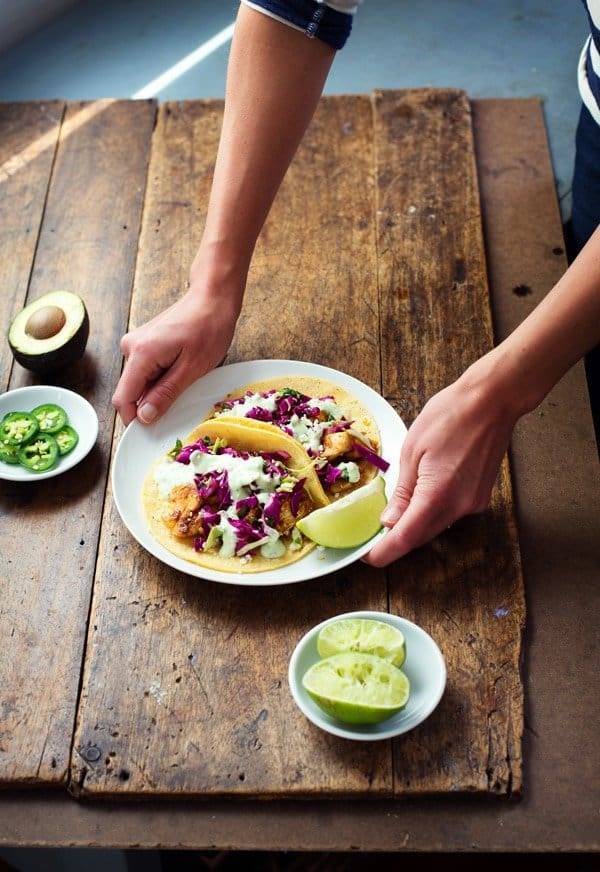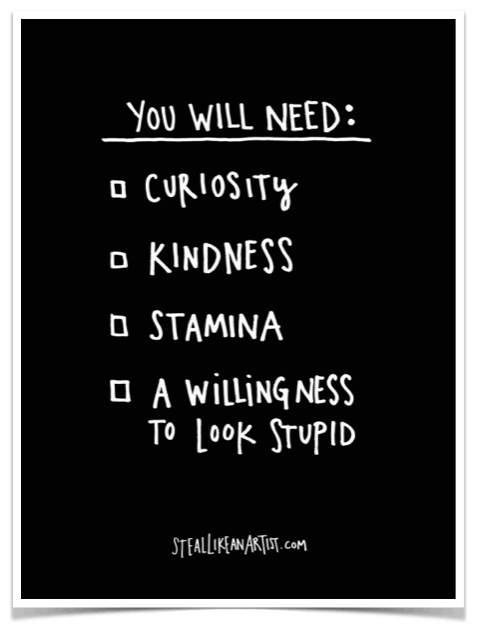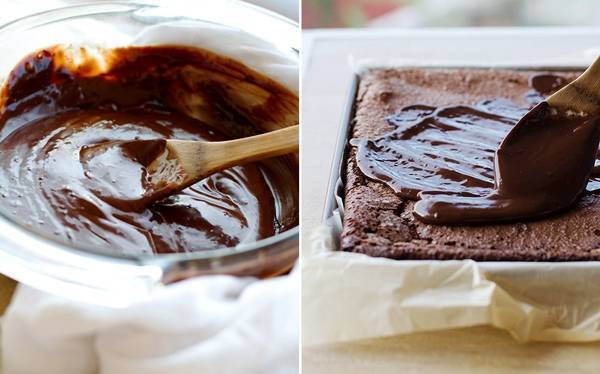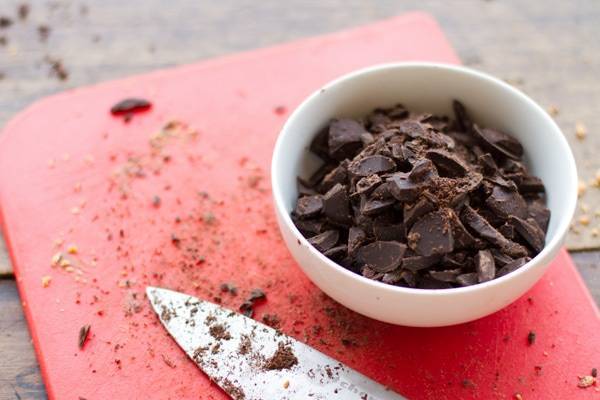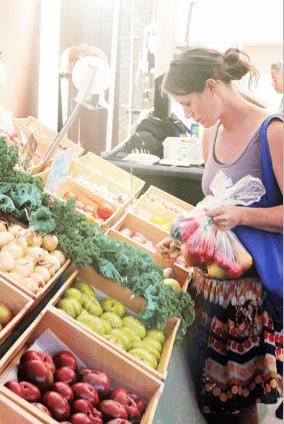Every once in a while, I sit down at the computer to write a post and my brain is literally empty. Zero words. No thoughts. BLEH. And by every once in a while I mean all the time lately. Usually I am overflowing with words and thoughts and ideas and random stories that I feel an urgent need to share on a food blog (?), but somehow that just poof disappears when I try to write at times like 11pm or 5am, which has kind of been the norm as of lately. And now, see, I’m already off track. This is why I need a conversation about what food bloggers should write about. {Great quote, great book.}
How Do You Know What To Write About?
To start honestly, at this point in my “food blog journey” and yes I did just use that phrase, I just take it as it comes. I’ve found after yeeears of doing this (coming up on 4 years to be exact, so I’m basically a blog grandma) that I can write with the most authentic voice if I’m just true to whatever I feel like writing about. It sounds most natural, it’s easy to write, it comes across as authentic. Because it is. The problem comes when I don’t feel like writing about anything, and in that case, I hole up in bed with a jar of Nutella. Juuust kidding. {eyes dart up and to the left} When I’m stuck at the keyboard with nothing in my mind but chocolate oblivion, I try to go one of two ways.
1. The Food Talk
If life has been kinda ho-hum or I’ve just dry for anything interesting to talk about, then it probably makes the most sense to get started by just writing about the recipe. Whiiich is kind of a “duh” moment because we are talking about food blogs. But even though it’s so simple, it can be surprisingly hard. It’s like I sit down, get the recipe in there, have the pictures in place. Now, uh, what do I have to say? Yum. The End. Here are some ideas of food related writing material that I use for inspo when I’m stuck. I’m not the only one, right?
sharing little tips for how to make the recipe turn out just right, like me demanding that you try using a food processor for the jalapeños or talking a lot about pan tilting and crepe flipping.describing which specific ingredients you recommend, like me obsessing over Trader Joe’s prechopped mirepoixexplaining what ingredients are typically used and how the dish is traditionally made – Jun-Blog is spot-on herewalking through how you did each specific step: Pioneer Woman has this down pat + she’s hilarious while doing ityour own made-up question and answer about the food or recipe, like when I did that for those plantains that I’m craving right now
2. The Telling Of a Story
As I have started to develop more of a relationship with my readers (I’m lookin’ at you, xo), I’ve started sharing more beyond-the-food stories. Like dumb little stories about going to the movies. Or more experiential stories about living the Philippines. Or pictures of my house. Did I really just put those on the worldwide webby? What in the world. Or even serious, sad, and deep in my heart stories about Bjork’s young aunt passing away after a battle with early onset Alzheimer’s. If it’s on my heart, I try to authentically share it in a way that is compatible with the recipe that I’m posting. This is powerful because a) it’s authentic! three cheers! and b) because people love love love stories. Myself included. I remember once I read a post by Joy the Baker and I can still remember the hilarious story she shared about a misplaced bee and a taken-off shirt in the middle of downtown (major paraphrase there – apologies, Joy). But guess what? I have no recollection whatsoever of what the recipe was in that post. Yet I vividly remember reading that post because of the story, and I remember it again whenever I think of her blog. That’s sticky and it’s good. Here are some great examples of powerful, moving, and engaging stories that I’ve seen:
a story that describes why the food was made and brings you into the experience, like this post from way back whena food and life story about what the food is inspired from and what it signifiesa story about the person who gave you the recipe – this was one of the first posts I ever read by Jessica of How Sweet Eats and even though it’s old, IMO it’s a perfect blend of food talk with storya story that’s random and funny, like the Joy Bee Story that I just found! awesomereflections and authentic sharing of what’s on your heart, like this lovely New Year’s recipe post by Sara of Sprouted Kitchen
To my food bloggers, remember that we want to not only provide useful content (a rockin’ recipe) but that we also want to connect and share with a group of people who want to read our blogs. And that connection is built not just because of the recipes, but because of who YOU are as a person and how well your reader can feel like they know you. And the goal is that you can very authentically communicate who you with your readers through your stories and your voice. In the last two years, I have changed my approach from just cranking out recipe after recipe to seeing my blog as a documenting of my story. Our year-long adventure in the Philippines sort of opened that door for me. The face of the blog is food, but I hope it always also tells the story of our lives and the people around us.
3. Always, Always, Always
One last thing that I always consider a non-negotiable no matter what I’m talking about that day: describe the food. I sometimes forget because I get wrapped up in the gab fest, but it’s really important to me that I communicate to you, my food friends, what the FOOD is like and even more importantly, why I love it. The fun of reading food blogs is seeing people passionately in love with their food and oh my gosh, I just wrote that. Passionately in love with their food. Wow. But it’s so exciting to read about someone talking about something they love, and turning that individual love into a collective experience with a group of virtual friends is just a really cool thing.
Blogger Words Of Wisdom
I most definitely did hunt down my favorite food blog writers and harass them until they gave me their responses to the question, “What should food bloggers write about?” Bev says: What should food bloggers write about? Any ol’ dang thing you please. Just make sure it sounds like you. Of course this is coming from someone whose voice is resemblant of an armpit fart, but what are ya gonna do? I’m not one to wax poetically on the juiciness of spring strawberries, or the soul warming effects of freshly baked bread, or the velvet nature of melting chocola – AND now I’m starving. But if that’s who you are, that’s who you are! Don’t be afraid to talk about toenails (don’t listen to me), ingrown hairs (again, ignore every word) or dirty diapers (seriously, just run away). Write what makes your heart do a little skip dee do, and call it a day. And then go melt some chocolate. Stephanie says: Tell stories. Write about what feels authentic to you. Maybe you made this muffin recipe because it reminded you of baking with your mom when you were knee-high to a grasshopper; maybe you made it because you found out your neighbor is sick and you wanted to bring over comfort in carbs; maybe you made it because you needed a little downtime in the kitchen, and this recipe provided that. The story doesn’t have to be epic or necessarily unique, but it has to be true. People want to be connected to you, to know more about who you are, why you decided to make muffins today and why those muffins are just oh-so-tasty to you. Liz says: I don’t think that there’s one right answer to the question of what you should write about on your food blog. You really have to play to your own strengths. If writing is not your forte, let your beautiful images or delicious recipes do most of the talking. But if writing is something that you enjoy, then by all means, make writing a central feature of your blog. Like the blogs that I enjoy reading, most of my posts include a story about what’s going on in my life or a notable event from my past, which is at least loosely related to the featured recipe. To be true to Carpé Season’s concept that life is seasonal, I will occasionally write about heavier, less-humorous topics, but for the most part, I try to keep my writing light and funny because I think that most people use food blogs as a quick source of entertainment as well as for recipe inspiration. Plus, I want to be everybody’s funniest friend. If you are going to invest in your writing, my biggest recommendation is to let your personality come through. Some of my most responded-to posts have included major fails like times that I’ve totally stuck my foot in my mouth. People seem to respond to vulnerability, even if it’s cloaked in six layers of self-deprecating sarcasm. When it comes to describing the recipe itself, I suggest keeping that portion somewhat brief and letting people read the recipe itself. I usually try to describe any interesting components of the recipe and highlight something that makes it stand out – a particular flavor or texture, or how easy it was to make. I try to keep it classy and avoid using the word amazeballs, but sometimes there’s just no getting around it. Bottom line: Creating blog posts should be enjoyable, or you won’t stick with it. Figure out what your strengths are and what you want your blog to convey, and write – a lot or a little – along those lines. Find a writing style that helps you get in a rhythm and doesn’t stress you out. Jessica says: I personally think that bloggers should write about what comes naturally to them. And they should write about what they themselves would like to read. It may sound crazy, but I’m not interested in paragraphs upon paragraphs of the recipe itself. I’d rather read something relatable, maybe even something that has little to do with the recipe but can be tied in at the end. Finish up with a line or two on why the dish is fab… and boom. I’m happy. Hey guys? Just one thing you should never do as a food blogger: write posts this long. Ohmygosh. If you are not drowning in the many words of this post, I SO SO SO welcome your thoughts on this topic. Also welcome: thoughts on desserts. Mwah.
